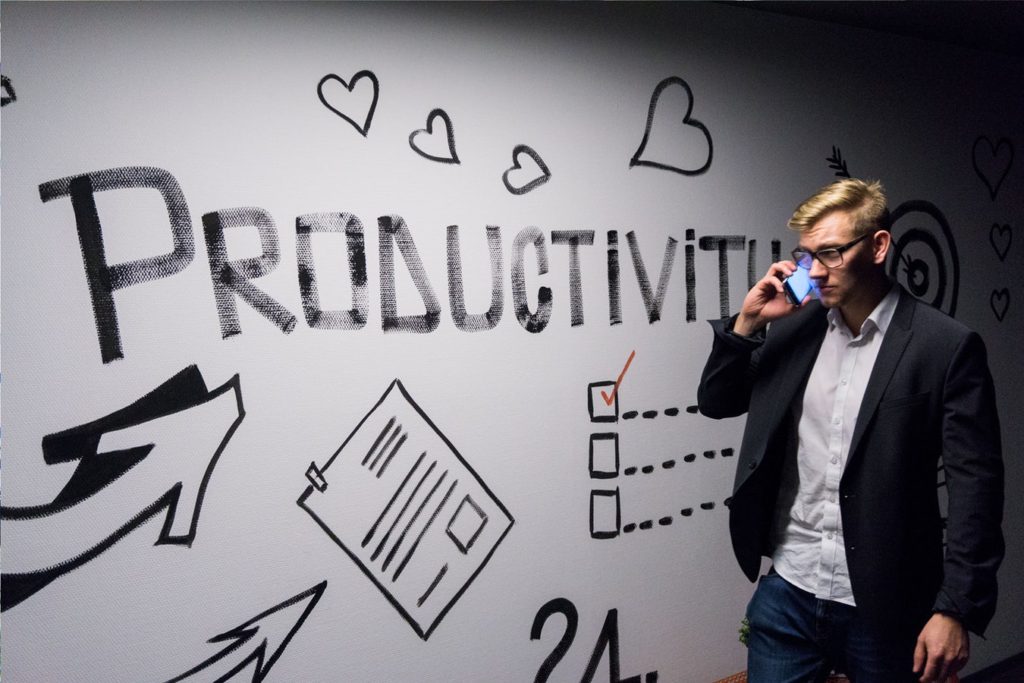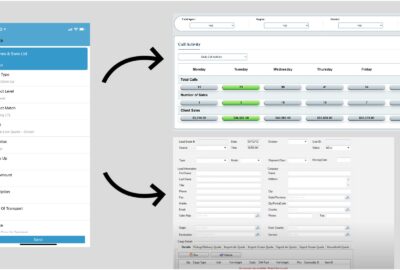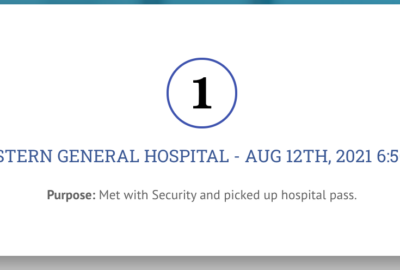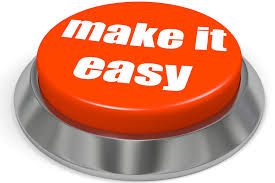Best Practises, Data Collection, Mobile CRM
Mobility does not mean Usability – Despite What You May Have Been Told
It is easy to say that the mobile device has become a focal point in our lives. It gives us instant access to information and contacts and allows us to stay connected wherever we are – we never leave home without it?
In business, enterprise mobility has become the general trend; increasing numbers of employees are working away from the office and using a range of mobile device to perform a full range of business tasks.
Nowhere is this is more prevalent than within sales forces: The days of populating and updating a CRM from a desk top computer have been consigned to the annals of history. Virtually every CRM vendor now claims mobility by application as part of their features. My personal view is that far too many people read the word “mobility” in an offering and automatically think “usable.” Nothing could be further from the truth. While there are some very effective and usable mobile business apps available many are anything but.
My advice?
Before making your final decision about any type of mobile application, is to try it.
Make a list of three critical things that you want your sales reps to accomplish using a mobile app. For example, submit sales report, update opportunity, create a new client, assign or update a task, update a forecast, retrieve historical client information etc. then try that yourself.
Once you have completed this task, ask yourself: “was it easy to learn, was it fast and easy to use, was it intuitive in its function, did I need outside support, was outside support available and effective, did it help me improve my productivity?”
Whatever your personal results were during this try it yourself trial, you must assume that your sales reps experience will be worse. Why? Because logically, they are less motivated and less tech savvy than you are and consequently, will have extra challenges in order to make it work.
During a recent implementation for an organization with more than 200 sales reps in the industrial supplies industry, we had some interesting support challenges. To give some insight, below are some of the calls that were logged into our customer support division. While some of these calls may be deemed amusing, my intention is to assist you in understanding the critical importance of usability. Never before has the “kiss” principal been more important than in dealing with sales reps and technology. Here we go….
· “What is an apple account and can you create one for me?”
· “I’m in my car and ready to get the app, where do I find the app store?”
· “It’s asking me about a data package?”
· “ I loaded your app yesterday and now it’s gone”
· “Ever since I loaded your app my phone doesn’t ring anymore”
· “I don’t want any of your techno mumbo jumbo, just fix it”
· “I think your app has a virus, every couple of minutes my screen turns black”
· “My fiancée loaded the app for me and I don’t know what it looks like”
The second step would be to ask the sales rep that is selling you the product to show you how they use it on their mobile device themselves. The results may be surprising.
The third option is to try it with your sales reps on a free trial bases and obtain their feedback, this is by far the best way to find out if an app is usable.
In addition to usability for the sales force there are several additional factors you need to consider before making that final decision.
· How does the app function when you have no connectivity?
· Does the app use battery power and data when running in the background and how much?
· How much IT effort is required to activate the app?
· How much training and support is required to initiate and to use the app?
· What mobile devices does the app function on and what devices do your sales reps have?
· Does the app have a history of crash or malfunctions?
· Does the company have a history of providing enhancements to their apps?
Do not let any of these challenges keep you awake at night. Simply email me – [email protected]
We are here to provide restful nights for time constrained sales managers seeking to achieve total control of their sales operations.
 Front Row Solutions – What We Have Learnt From 10 Years of Mobile Data Collection
Front Row Solutions – What We Have Learnt From 10 Years of Mobile Data Collection

Related posts
Best Practises, Case Studies, Data Collection, Geo-location, Mobile CRM
Top-Ten-real-time
Top 10 Advantages to Real-time Reporting Front RoW Solutions Real-time sales reporting is the ability to submit a sales report immediately after a client interaction….
Best Practises, Data Collection, Mobile CRM
Automate & Integrate Your Workflow
Capture or Update Data for Any Task. From Quotes and Sales to the Mode of transport. Your Data Is Automatically Pushed into Your Existing ERP,…
Best Practises, Case Studies, Data Collection
Real Time Reporting
Front Row Real-Time Reporting Created by potrace 1.15, written by Peter Selinger 2001-2017 Western General Hospital – Aug 12th, 2021 6:50am Purpose: Met with Security…
Best Practises, Data Collection, Mobile CRM, Uncategorized
Usability To Drive Revenue
Usability to Drive Revenue Front RoW Solutions New clients reach out to us to understand the claim of Front Row’s usability. Here is my answer:…
Best Practises, Case Studies, Uncategorized
Great Product VS Great Salesforce
great product vs great sales force Front RoW Solutions Would You Rather A great Product Or A Great Sales Force? This is the first question…
Comments are closed






